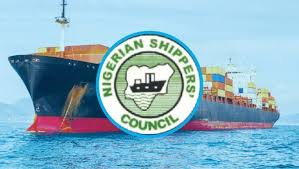The Nigerian Shippers’ Council (NSC) is a Federal Government agency responsible for protecting and promoting the interests of cargoes entering and leaving Nigeria.
It plays a crucial role in the economic growth of the country by ensuring efficient port operations and developing economic regulations.
For contractors, suppliers, and service providers in the maritime industry, registering as a Regulated Service Provider with the NSC is essential.
This article provides a detailed guide on the requirements, process, and benefits of registering with the Nigerian Shippers’ Council.
Importance of Registration with the Nigerian Shippers’ Council
Registering with the NSC as a Regulated Service Provider offers several benefits:
- Legitimacy: Ensures compliance with Nigerian regulations.
- Market Access: Facilitates participation in the maritime industry.
- Credibility: Enhances trust with stakeholders.
- Operational Efficiency: Streamlines operations within Nigerian ports.
Categories of Regulated Service Providers
Service providers in the maritime industry are expected to register with the NSC in the following capacities:
- Government Agencies
- Cargo Consolidators/De-consolidators
- Barge Operators
- Chandlers
- Freight Forwarders
- Clearing Agents
- Handlers/Truckers
- Logistics Service Providers
- Stevedoring Terminal Operators
- Off-dock Terminal Operators
- ICD Operators
- Shipping Agencies (Non-Vessel Operators)
- Shipping Companies/Lines
- Importers and Exporters
Fee Structure and Annual Renewal Fees
The registration fee varies depending on the category of service provider:
| Category | Registration Fee (₦) |
| Seaport Terminal Operator | 50,000 |
| Shipping Companies/Lines | 50,000 |
| Inland Container Depot/Dry Port Operator | 50,000 |
| Shipping Agencies (Non-Vessel operators) | 50,000 |
| Cargo Consolidators/De-consolidators | 10,000 |
| Off-dock/Bonded Terminal Operators | 20,000 |
| Freight Forwarders/Clearing Agents | 10,000 |
| Barge Operators | 20,000 |
| Hauliers | 10,000 |
| Stevedoring Companies | 20,000 |
| Cargo Surveyors | 10,000 |
| Jetty Operators | 20,000 |
| Corporate and Individual Shippers | 30,000 |
| Other Service Providers and Users | 10,000 |
Required Documents for Registration
To register as a Regulated Service Provider, the following documents are required:
- Evidence of Registration with Relevant Agencies.
- Current Tax Clearance Certificate.
- Certified True Copy of Certificate of Registration with Corporate Affairs Commission (CAC).
- Form CAC 7 (Particulars of Directors) if applicable.
Registration Process
The registration process involves several steps that can be completed online through the NSC’s registration portal.
Here is the official and sequential process for registration:
Step 1: Create an Account
- Visit the Registration Portal: Open your preferred browser and go to registration shipperscouncil.gov.ng.
- Initiate Registration: Click the “Register” button on the portal’s landing page.
- Fill the Registration Form: Complete the account registration form with accurate details.
- Submit and Verify: Submit the form and check your email for an activation link to verify your account.
Step 2: Login
- Access the Login Page: Return to the registration portal and click the “Login” button.
- Enter Credentials: Input your registered email address and password to log in.
Step 3: Update Company Information
- Navigate to Profile: Click the profile button on the top right corner of the dashboard.
- Update Details: Update your company information, including company address.
- Save Information: Ensure all updates are saved properly.
Step 4: Apply for Registration Certificate
- Start Application: Click on “Apply for Certificate” on the dashboard.
- Select Application Type: Choose “New” for the application type.
- Choose Category: Select the appropriate application category that matches your service.
- Fill the Application Form: Complete the form with all required details.
- Submit and Generate RRR: Submit the application and generate a Remita Retrieval Reference (RRR) for payment.
Step 5: Make Payment
- Proceed to Payment: Use the payment gateway on the portal to complete the transaction.
- Confirmation: Ensure you receive confirmation of payment.
Step 6: Upload Required Documents
- Go to My Applications: Click on “My Applications” on the dashboard.
- Upload Documents: Select “Upload Documents” and upload all necessary files.
- Submit Documents: After uploading, click “Submit Documents” to send them to the processing officer.
Step 7: Await Approval
- Application Processing: The NSC will review your application and documents.
- Notification: You will receive a notification once your application is approved.
Step 8: Obtain Certificate
- View Certificate: Once approved, log in to your dashboard to view your certificate.
- Download and Print: Download and print your certificate for your records.
Conclusion
Registering with the Nigerian Shippers’ Council as a Regulated Service Provider is a critical step for businesses operating in the maritime industry.
By following the outlined steps and meeting the requirements, you can ensure compliance, enhance your credibility, and capitalise on the opportunities within Nigeria’s ports.
For a smooth registration process, consider consulting with legal and industry experts to navigate the complexities and secure your registration efficiently.


